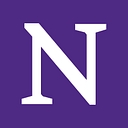
Thoracic Surgery Integrated Residency
Northwestern Medicine - Feinberg School of MedicineThoracic Surgery Integrated Residency
The six-year Thoracic Surgery Integrated Residency Program was initially approved by the ACGME Residency Review Committee for Thoracic Surgery in 2010 and accepted its first resident in 2011. This makes Northwestern one of the earlier programs of this type in the country. The goal of the program is to produce excellent cardiac and thoracic surgeons by combining intensive experience in cardiac and thoracic surgery with carefully selected experiences in general surgery and related disciplines.
Click here to watch our video introduction to the program
Clinical Experience
The first three years of the program comprise the core surgery experience. During that time, residents rotate in a variety of general surgical specialties aimed at providing education in the care of routine and critically ill patients as well as early operative experience. Rotations include trauma surgery, vascular surgery, minimally invasive gastrointestinal surgery, surgical intensive care, transplant surgery, plastic surgery and several community general surgery experiences. Additionally, residents will spend five months in general thoracic surgery and five months in cardiac surgery during the first three years. Focused rotations in related specialties include cardiology critical care, cardiac anesthesia and interventional cardiology/cath lab. Throughout the entire core experience, residents remain firmly connected to the thoracic program by participating in all weekly didactic sessions, direct mentoring with thoracic faculty and ongoing clinical research projects.
The final three years of the program are equivalent to the classical thoracic surgery fellowship with rotations in thoracic surgery, cardiac surgery and congenital heart surgery. Residents take on graduated responsibility for increasingly complex patients and operations and learn to manage a busy and complicated practice in preparation independent practice after graduation. The thoracic surgery rotations focus on the diagnosis and treatment of common and complex pathologies of the lung, airway, esophagus, chest wall and mediastinum. The Robert H. Lurie Comprehensive Cancer Center of Northwestern University provides a wide range of experience in malignant lung and esophagus tumors as well as metastatic disease to the chest, malignant pleural disease, mediastinal tumors and chest wall masses. There is extensive multidisciplinary collaboration establishing a model for patient-centered care. Close relationships with Pulmonary Medicine and primary care practices ensure residents are well versed in the diagnostic and therapeutic techniques for benign lung, airway and pleural disease as well. The newly opened lung transplant program extends these experiences to include treatment of advanced end-stage lung disease via lung volume reduction and single and bilateral lung transplant. Finally, our service is intimately involved with the Gastroenterology Esophageal Motility Disorders Center at Northwestern, which sees a large volume of patients with complex benign esophageal disease, including failed anti-reflux procedures and end-stage achalasia.
The adult cardiac surgery rotations in the early portion of training focus on use of cardiopulmonary bypass to treat straightforward ischemic and valvular disease. As residents become comfortable with the basic skills and concepts, they take on graduated responsibility for increasingly complex patients and operations and learn to manage a busy and complicated service. During the fifth year, the residents spend one month in the cardiac cath lab to learn advanced wire skills in preparation for performing endovascular aortic and valvular procedures. The cardiac experience culminates in the cardiac surgery chief position for six months in the final year, during which the resident runs all of the day-to-day activities of the service.
The congenital heart disease rotation occurs near the end of the fifth year at Ann & Robert H. Lurie Children’s Hospital of Chicago, located across the street from Northwestern Memorial Hospital. This experience is designed to provide residents with an appreciation of the spectrum of congenital heart disease as well as an enhanced understanding of cardiac hemodynamics, which can be applied to adult disease. Certification in congenital heart disease does require an additional year of training. However, for those with an interest in congenital surgery, additional time can be spent at Lurie Children’s during their final year. Three months of elective time in the final year is designed to allow residents to focus in an area of specific professional interest. This may include heart failure, congenital heart disease, great vessel disease, lung transplant, minimally invasive thoracic surgery or other areas.
Application Process
All applications must be submitted via the Electronic Residency Application Service (ERAS).
The annual deadline for application is Oct. 30. Applications received after that date will not be reviewed.
A complete application includes the following:
- Three letters of recommendation
- Personal statement
- USMLE transcript
- Medical school transcript
- Medical school performance evaluation (dean's letter)
- ECFMG certificate (if applicable)
Our application review committee considers the entire application, in a holistic approach. Therefore, we do not have any minimum score requirements.
Personal interviews are by invitation only and are required for acceptance to our program. Applicants who we wish to invite to interview will be notified via ERAS email. Interviews will be offered to applicable candidates in January.
International Medical Graduates
No previous U.S. clinical experience is required to apply to our program.
We do not have a minimum/maximum number of years from medical school graduation date requirement.
The preferred visa for training at the McGaw Medical Center of Northwestern University is the J-1 visa sponsored through the ECFMG for residency/fellowship training.
Applicants should be ECFMG-certified by the application deadline (Nov. 1).